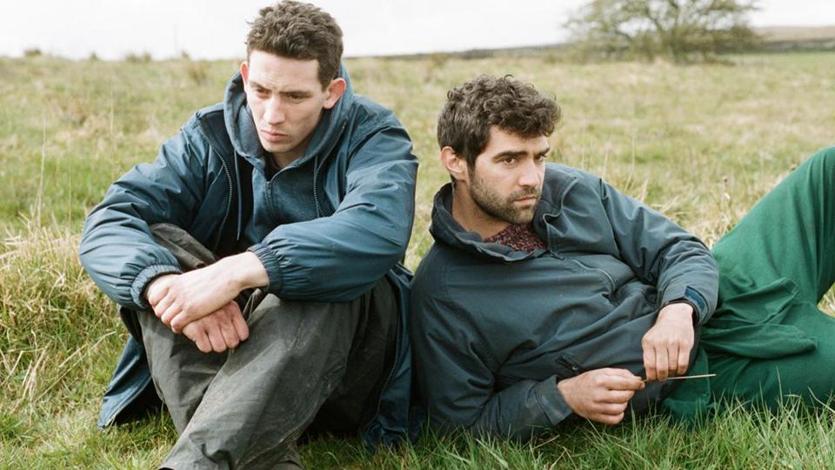 DALES PRODUCTIONS LIMITED/THE BRITISH FILM INSTITUTE
DALES PRODUCTIONS LIMITED/THE BRITISH FILM INSTITUTE
By: Isaac Feldberg
“The wind pours by like destiny, bending everything in one direction,” American poet Sylvia Plath famously wrote of the Yorkshire Moors, where she once lived with her husband, poet laureate Ted Hughes. “I can feel it trying to funnel my heat away.”
Hughes was born there. Plath’s buried there. In reflecting upon the harsh, elemental poetry of Yorkshire-set “God’s Own Country,” the startlingly assured debut of English writer-director Francis Lee, it’s unsurprising that her words spring more readily to mind than his.
Captured by Lee as an impassively icy wilderness of gray-green clouds and weather-beaten crags, the moorland appears a crushingly lonesome place, perhaps to no one more than Johnny (Josh O’Connor). When we first meet him, the surly young man is retching into a toilet, purging pints he downed the night before at the local watering hole. Resigned to a dreary existence on his family’s scrap of farmland, barely keeping his ailing father (Ian Hart) and grandmother (Gemma Jones) afloat, Johnny has few outlets to express his discontent, save binge-drinking and rough, unemotional sex with strangers against the clanging metal walls of a cattle trailer.
Johnny’s queer but, refreshingly, “God’s Own Country” is not the coming-out narrative one might expect; he’s not in denial about his sexuality, nor are his elders, who demand of Johnny a life that impedes his self-expression out of pragmatism, not prejudice. The conflict here is internal, Johnny pursuing self-destruction in the act of repressing feelings that undermine the utilitarian ideals of masculinity he’s inherited.
Repressing them, that is, until the arrival of Gheorghe (Alec Secareanu), a Romanian migrant hired to help with the lambing season. Johnny greets the stranger with scorn, especially upon seeing the radical softness with which Gheorghe tends to bleating newborns. Toiling on an isolated paddock, the two take the measure of one another, eyes roaming, suspiciously at first, but then lustfully. An initial sexual encounter is spartan, animalistic, two bodies writhing around in the muck.
In the afterglow of this escalation, the movie brightens. Johnny looks healthier. He cracks a smile. Gheorghe has sparked something unfamiliar, coaxing warmth back into Johnny’s numbed heart with the same tenderness he shows a struggling runt, rubbing its viscid frame and providing mouth-to-mouth until it shakes gratefully to life.
There’s a reading of “God’s Own Country” that’s critical of this dynamic, that “saving” Johnny falls to the film’s sole non-English character, given how the film navigates ethnic tensions (Johnny’s especially) less confidently than masculinity and queerness. But O’Connor and Secareanu give such aching performances that their romance feels real. Gheorghe’s efforts to show Johnny another way are often wordless: a delicate touch, a longing look. As the story arcs toward its touching denouement, it’s those quiet moments — imbued with the windswept soul of the landscape — that harbor the most lyrical beauty.
By

Isaac Feldberg
Education
CAMD
